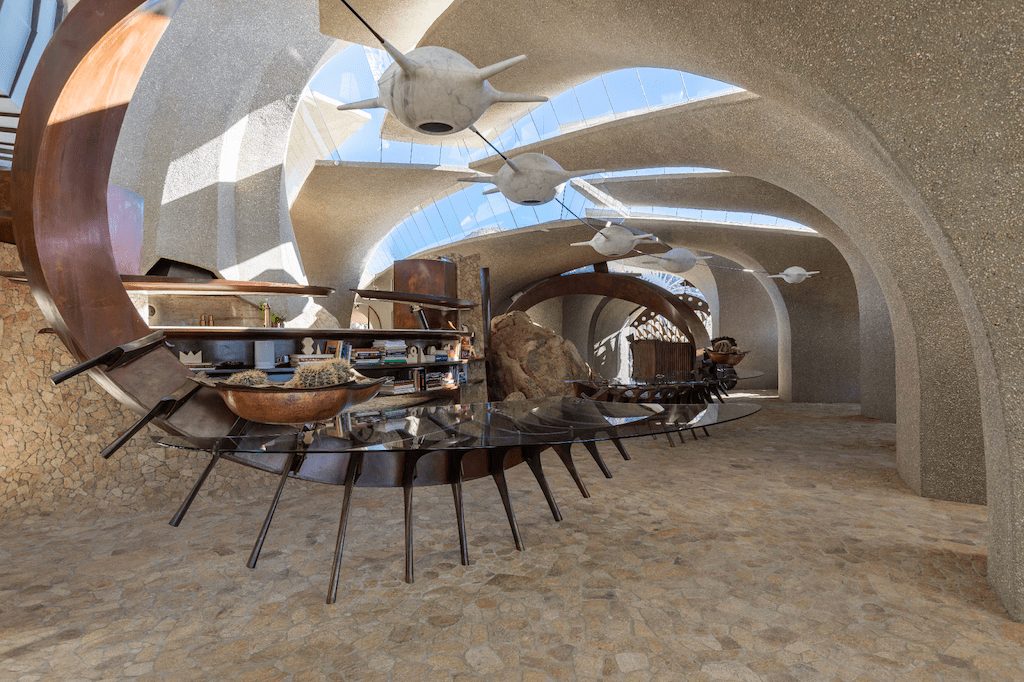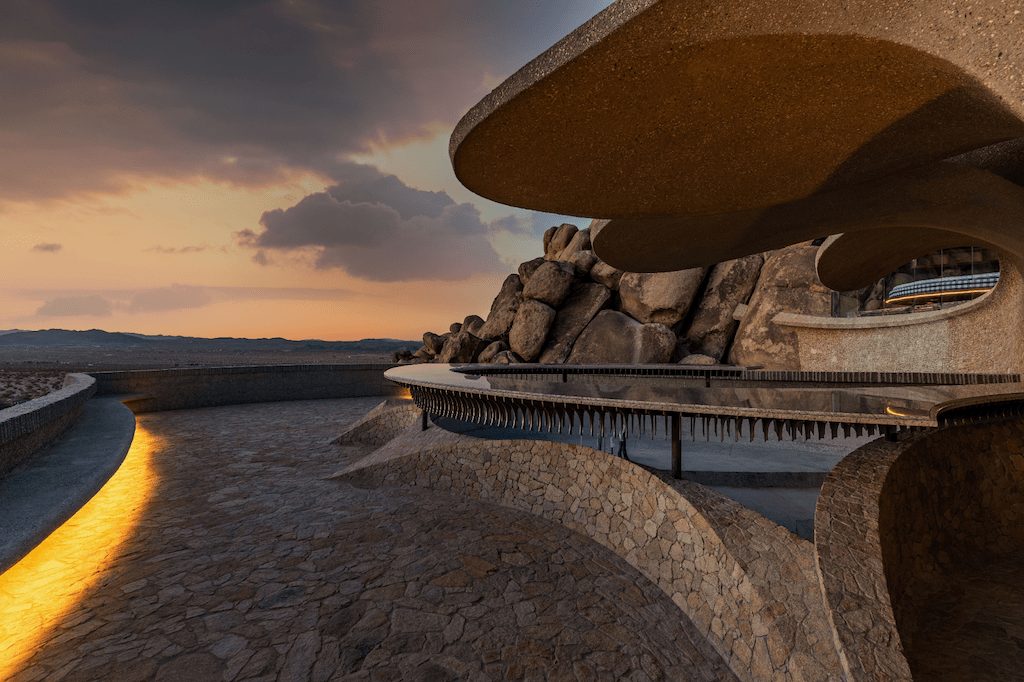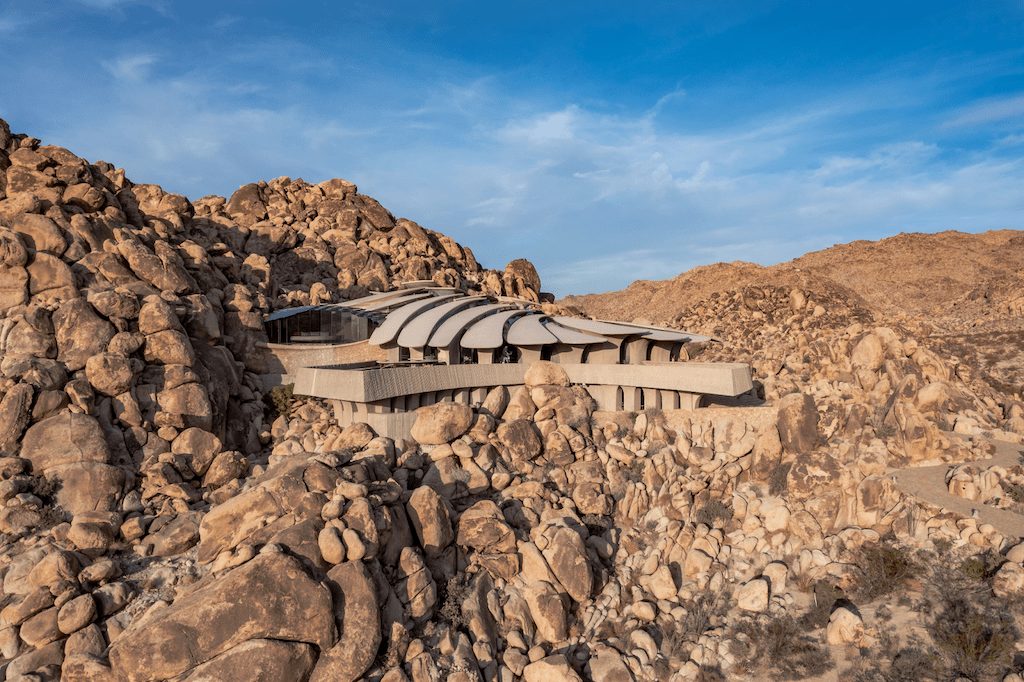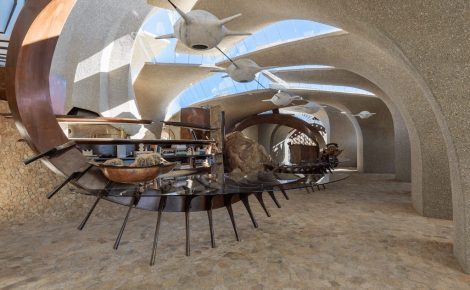
Photo Credit: Kellogg-Doolittle Residence Instagram
Although staying in upscale hotels with typical elegance is traditionally associated with luxury travel, a new class of tourists is beginning to appear. These people aren’t content with standard luxury experiences anymore. They look for lodgings that offer a special fusion of coziness, exclusivity, and closeness to their environment. Nestled in the rocky beauty of Joshua Tree, California, the Kellogg Doolittle House rises to this occasion with superb architecture and seamless incorporation into the surroundings.
Addressing Industry Challenges
The luxury travel sector confronts a significant challenge: despite their opulent facilities, many upscale resorts sometimes lack a distinct personality and fall short of producing an unforgettable experience that connects with customers. Conventional luxury hotels often fail to provide an immersive, unique experience while having beautiful décor and excellent services. There is a definite need in the market for hotels that can match these changing expectations and offer more than simply comfort, such as a sense of exclusivity and a connection to nature.
What Makes the Kellogg Doolittle House Unique

Photo Credit: Kellogg-Doolittle Residence Instagram
The renowned architect Kendrick Bangs Kellogg filled this need with his design of the Kellogg Doolittle House, which offers a home apart from typical opulent lodging. Beverly and Jay Doolittle, two artists, commissioned the construction of the house in 1988; it was finished 26 years later in 2014. This house is more than simply a place to live; it’s a work of organic architecture, perfectly designed to blend in with the surrounding desert landscape.
Perched on a 10.5-acre site among very old granite rocks, the Kellogg Doolittle House defies convention. In place of traditional walls and framing, Kellogg’s design integrates the building with the surrounding natural rock formations while supporting it with 26 enormous cantilevered concrete columns. The outcome of this design strategy is an interior that seems both roomy and closely linked to the untamed environment outside.
A Close Look at Its Special Qualities
Every element of the Kellogg Doolittle House has been carefully considered to improve the overall experience. The skilled craftsman John Vugrin was instrumental in realizing Kellogg’s concept. For more than 25 years, Vugrin worked with a range of materials, such as metal, stone, marble, and wood, to create unique lighting fixtures, furniture, and other items. His labor has transformed the mansion into a seamless fusion of art and usefulness, with each piece custom-made to enhance the home’s distinctive style.
The Kellogg Doolittle House’s utilization of natural boulders is among its most remarkable elements. The aggressive, contemporary shapes of the columns contrast with the cozy, welcoming environment created by these ancient rocks, some of which are integrated into the building. The distinction between indoor and outdoor areas is further blended by the continuous stone floor, which starts at the front gate and continues through the 550-foot walking way inside the home.
The Fix for Conventional Luxury’s Drawbacks
The Kellogg Doolittle House offers a stay that is unique and intimately connected to its natural surroundings, addressing the drawbacks of conventional luxury lodging. This property is the perfect getaway for anyone looking for inspiration and peace of mind since, in contrast to traditional residences, it offers an experience that fully immerses visitors in the surrounding countryside. The home stands out in a competitive market because of its creative design and superb craftsmanship.

Photo Credit: Kellogg-Doolittle Residence Instagram
Visit the official website for additional details on how to see the Kellogg Doolittle House and make reservations. The Kellogg Doolittle House offers an exceptional experience whether you’re looking for a calm getaway, an inspirational location for a special occasion, or just a chance to lose yourself in a distinctive fusion of luxury and nature.
Written in partnership with Tom White





